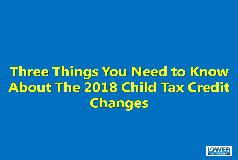Blog
Click here to go back
What to consider before lending money to family and friends
When your best friend views your
nest egg as a source of start-up funds for his latest business venture, or your
nephew hits you up for a car loan, your first impulse may be to reach into your
bank account to help. But it's a fact that loans to family and friends often
end up straining both finances and relationships. As Shakespeare said,
"Loan oft loses both itself and friend." In other words, if you lend
money to friends, you often don't get paid back, and the friendship itself may
disintegrate.
It's best to consider a loan to
someone you love as an "arm's length" transaction. If you're
pondering such a loan, keep the following in mind:
* You can just say "no."
It's your money, after all. Do you really want to raid an emergency fund or dip
into your child's college account to finance a friend's business idea? Think
like a bank. It's reasonable to ask tough questions about the person's bank
accounts, potential sources of income, planned use of loan proceeds, and
spending habits before extending credit.
* Consider a gift. If you're
comfortable sharing your resources, you may want to provide a monetary gift
with no strings attached. In many cases, this is the best solution because
neither you nor your friend expect the money to be paid back. Unlike a loan, this
type of arrangement can forestall misunderstandings and hurt feelings later on.
Of course, you should not give money if doing so would unduly strain your own
finances.
* Formalize loans. If you decide to
lend more than a small amount to a friend or family member, it's generally best
to draft a written agreement. This can be as simple as filling out a promissory
note (available online or at office supply stores). Such forms spell out the
basic terms of the loan -- amount, interest rate, payback period -- and provide
some limited protection should you and the borrower end up in small claims
court. Another recent innovation is the use of direct lending (also called
social lending or peer-to-peer lending) websites to facilitate loans between
family and friends. For a fee, such sites can prepare loan documentation, send
payment reminders, issue regular reports, even facilitate electronic fund
transfers. If the loan involves a significant amount of money, check with your
attorney.
Remember: Many personal relationships
have been damaged when loans go awry. So proceed with caution.
Posted in general

Hello, this is Noel Dalmacio, your ultimate CPA at LowerMyTaxNow.
Here are three things you need to know about the new 2018 child tax credit:
Tax credit is doubled
- Credit went up from $1,000 to $2,000 per kid.
- Your kid must be under 17 at the end of the year to claim the credit.
Income range huge increase
- This credit will now be available to more taxpayers, because of the massive increase in the income range. Here's a quick guide:
Married filing jointly - $400K - $440K
Other filers - $200K - $240K
- So if your income is below the limit, you can take the full credit. But if it falls between the income range, then you can only make claim a partial credit. But if your income exceeded the limit, you cannot take the credit.
Other dependents’ credit
- They also passed a nonrefundable $500 "family credit" for other dependents. Examples are your aging parent or your kid who is 17 years or older.
One thing I want to point out is that - this is a credit, not a tax deduction. While a deduction reduces your income, a credit reduces your tax dollar-for-dollar. So, for example, if you have a tax due of $2,000 for the year, and have a $2,000 child tax credit, your tax bill drops to zero.
To recap, here are the three things you need to know about the 2018 child tax credit: 1. The tax credit doubled, 2. Income range huge increase & 3. Other dependents’ $500 credit.
If you like to learn more, click the link lowermytaxnow.com and sign-in to receive my weekly blog.
Until then, this is Noel Dalmacio, your ultimate CPA at lowermytaxnow.com.
Last Updated by Admin on 2018-06-07 06:53:35 PM
